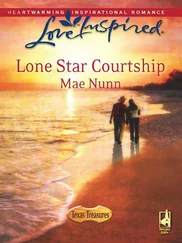Kem Nunn - Chance
Здесь есть возможность читать онлайн «Kem Nunn - Chance» весь текст электронной книги совершенно бесплатно (целиком полную версию без сокращений). В некоторых случаях можно слушать аудио, скачать через торрент в формате fb2 и присутствует краткое содержание. Город: New York, Год выпуска: 2014, ISBN: 2014, Издательство: Scribner, Жанр: Триллер, на английском языке. Описание произведения, (предисловие) а так же отзывы посетителей доступны на портале библиотеки ЛибКат.
- Название:Chance
- Автор:
- Издательство:Scribner
- Жанр:
- Год:2014
- Город:New York
- ISBN:978-0-7432-8924-5
- Рейтинг книги:4 / 5. Голосов: 1
-
Избранное:Добавить в избранное
- Отзывы:
-
Ваша оценка:
- 80
- 1
- 2
- 3
- 4
- 5
Chance: краткое содержание, описание и аннотация
Предлагаем к чтению аннотацию, описание, краткое содержание или предисловие (зависит от того, что написал сам автор книги «Chance»). Если вы не нашли необходимую информацию о книге — напишите в комментариях, мы постараемся отыскать её.
Chance — читать онлайн бесплатно полную книгу (весь текст) целиком
Ниже представлен текст книги, разбитый по страницам. Система сохранения места последней прочитанной страницы, позволяет с удобством читать онлайн бесплатно книгу «Chance», без необходимости каждый раз заново искать на чём Вы остановились. Поставьте закладку, и сможете в любой момент перейти на страницу, на которой закончили чтение.
Интервал:
Закладка:
Chance
by Kem Nunn
This one is for Ulrike, my only Uli
Chance1. The absence of any cause or series of causes of events as they actually happen that can be predicted, understood, or controlled. Sometimes granted agency, as in: Chance governs all.
Chance and the summer of love
Early on, before it had become apparent just how acrimonious, costly, and downright mean spirited the divorce would become, Chance had thought to find a place in or near the Presidio, a small house perhaps, with a view of the water, the proximity of redwood and cedar. The fantasy was short lived. The good places were expensive and hard to come by though nothing in the city was cheap anymore, that other Summer of Love a long time gone.
He’d settled finally for a modest one-bedroom apartment with a shared basement garage at the edge of the Sunset from whose front-most windows he might on occasion glimpse the sea. The streets in his new neighborhood, though raked at a slight angle to run downward in the general direction of the Pacific Ocean, were uniformly flat and treeless, bordered by long lines of gaily painted stucco and wooden structures. On sunny days he found these streets infused with such light as he’d come to associate with the deserts of the Southwest, their hopeful pastels bleached of meaningful distinctions. On foggy days the colors were made impotent as well, barely distinguishable from the damp concrete sidewalks, the asphalt streets, or the pale, slate gray sky. Analogies he might have drawn with his own life appeared tiresome even to him.
What he’d taken as the decline of things in general had coincided with a particularly disturbing case. It was not a complicated case. There were no legal or medical puzzles to be solved. There were only the facts, which he had summarized as follows:
At the time of my evaluation Mariella Franko was 34 months post a head-on motor vehicle accident in which her 68-year-old father was killed in gruesome fashion. (In an effort to avoid a wayward dairy cow that had wandered into his lane, her father had collided with an oncoming delivery truck. He was decapitated. His head rested in the rear seat. Mariella remained trapped next to her father’s body till freed by the Jaws of Life. She remembers shouting “Daddy!” many times while in the car.)
Review of emergency medical services indicates her Glasgow Coma Scale was 15 at the time of their arrival. Her chief complaint was listed as “My daddy… I want my daddy!” She was medicated with intravenous fentanyl and transferred by ambulance to a CalStar helicopter that carried her to Stanford. Upon arrival, she was crying and asking for her father. No fractures or internal injuries were found. She was monitored overnight and sent home with plans for follow-up by a primary care physician.
A psychiatric evaluation done one month later describes anxiety, depression, startle reactions, spells of tachycardia, tachypnea, and perspiration together with intrusive thoughts of her father. It was noted that she had spent three months off work and attempted to distract herself by trying to watch television. Her social life had become very constricted, with severe withdrawal and isolation. She described a predominant state of hopelessness and lack of motivation. Ms. Franko was found to be suffering from chronic post-traumatic stress disorder and major depression. A course of psychotherapy together with antidepressant medication was recommended.
Unfortunately, Ms. Franko went on to receive neither psychotherapy nor pharmacotherapy and remained, at the time of my evaluation, anxious, depressed, and struggling to avoid any such thoughts, mental images, or feelings as might return her to the night of the accident. I agree that Ms. Franko suffers from chronic post-traumatic stress disorder. She faced a life-threatening situation, believed she was going to die, was present at her father’s death, and was trapped in a vehicle with him under gruesome circumstances. The photographs I have been shown speak for themselves. It is unfortunate that a second psychiatric consultation was not obtained until more than 2 years had passed following the accident. And while her avoidance of mental health care professionals is understandable, it is exactly this avoidance to which health care providers should have responded…
Eldon J. Chance, MD Associate Clinical Professor Department of Psychiatry UCSF School of MedicineThere was more to the report but that was the gist of the thing. Someone’s insurance company had retained him to evaluate the nature and severity of her psychological trauma. Chance was a forensic neuropsychiatrist and made the better part of his living explaining often complicated neurological conditions to juries and or attorneys who would soon be standing in front of juries, in cases ranging from personal injury to elder abuse to undue influence. He was sometimes asked for evaluations by other doctors and sometimes retained by family members or estates. It was not the practice he’d once imagined but it was the practice he had. He rarely saw someone more than once or twice and rarely worked with them as patients.
And so it had been with Mariella Franko. He had seen her only once, at the time of his evaluation. He did not know what had become of her, how her case had come out, or whether or not she had received any of the recommended therapies or medications. Nor, it no doubt goes without saying, was she the only patient he saw that summer. It was a season in which any number of cases might have occupied his thoughts.
J.C. is a 36-year-old, right-handed white woman with a long and complicated medical history. The product of an attempted abortion (born prematurely at 7 months) she suffers a mild form of mental retardation, the result of oxygen deprivation at the time of the botched procedure and premature birth. The patient admits to a long-standing incestuous relationship with her father and after 7 miscarriages gave birth to a son with numerous congenital anomalies…
M.J. is a 42-year-old, right-handed black woman with several years of college education. The patient relates that at the age of 36, while walking from her job in a bookstore to her home in the Mission District, she was assaulted by an Hispanic male standing over six feet tall and weighing more than two hundred pounds. She has only partial recollections of the assault but remembers having her head struck repeatedly against a fire hydrant after trying to run from her attacker. M.J. states that over the next year she was extremely depressed and spent 12 months watching television or staying drunk. During this time she acquired a handgun and would occasionally discharge it in frustration and rage. Her closest friend was a pet rat, which she says would come over and put its paw on her hand to console her. M.J. currently lives alone in low-budget housing for the homeless and mentally disabled in San Francisco…
L.S. is a 46-year-old woman who grew up with an abusive alcoholic mother. The identity of her father has never been made known to her. L.S. is at pains to present herself as an individual with learning disabilities. She states that as a young child she seemed to learn everything “backward.” She would read not only individual words but also pages backward. If she is forced to read a book beginning at the front, she seems to have little sense of the story until she is able to read it again from the end to the front. Although the bulk of L.S.’s time is spent caring for the 104 exotic birds she owns, her second greatest passion is reading about mental illness and learning disabilities. The patient states that for as long as she can remember she has felt depressed, empty, and uncertain as to who she is…
Читать дальшеИнтервал:
Закладка:
Похожие книги на «Chance»
Представляем Вашему вниманию похожие книги на «Chance» списком для выбора. Мы отобрали схожую по названию и смыслу литературу в надежде предоставить читателям больше вариантов отыскать новые, интересные, ещё непрочитанные произведения.
Обсуждение, отзывы о книге «Chance» и просто собственные мнения читателей. Оставьте ваши комментарии, напишите, что Вы думаете о произведении, его смысле или главных героях. Укажите что конкретно понравилось, а что нет, и почему Вы так считаете.












